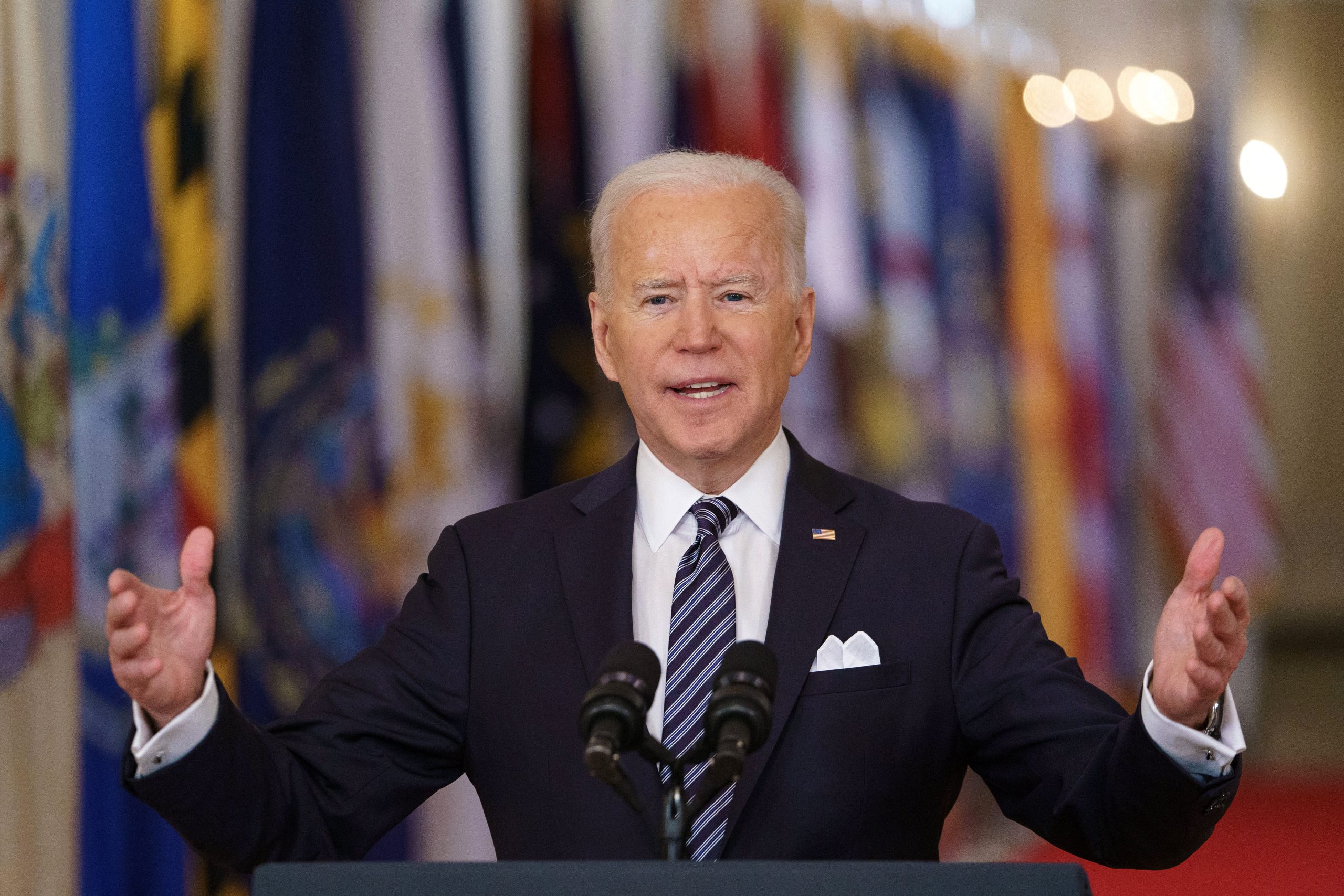While addressing the Quad summit on Friday, US President Joe Bidens in a clear message to China told the coalition leaders that a ‘free and open’ Indo-Pacific region is monumental to their countries. He
also pledged that America will always be committed to work with its allies in
the region in order to achieve stability amidst China’s coercive actions,
reported PTI
Also Read: COVID-19 vaccine, climate change and emerging technologies on agenda: PM Modi at Quad meet
“A free and open Indo-Pacific is essential to each of our futures, our countries,” Biden told the top Quad leaders including Prime Minister Narendra Modi.
In
his opening remarks during the first virtual Quad summit, Biden described the
coalition as a an advanced platform to enhance cooperation and reach mutual
grounds to capture collective goals like climate change.
Calling the Quad group an important panel to reach concrete results, Biden in an evident reference to China said,”We
know our commitments and our region is governed by international laws which are based and committed to all universal values such as freedom from coercion.”
Also Read: Quad summit: With eyes on China, US and allies launch vaccine plan
Biden
noted that their meeting is also the first multilateral summit that he had the
opportunity to host as president since assuming office on January 20.
“The
Quad is going to be vital in our cooperation in the Indo-Pacific and I look
forward to looking closely to working with all of you in the coming
years,” Biden told the Quad leaders as he requested Prime Minister Modi to
speak.
“It’s
great to see you,” Biden, who is attending the summit less than two months
after he took charge as US President, told Prime Minister Modi.
The
other Quad leaders expressed similar excitement and willingness to collaborate
in the Indo-Pacific region.
Australian
Prime Minister Scott Morrison thanked President Biden for brining in the four
nations together and said that ”history teaches us that we are nations engaged
together in a partnership of strategic trust of common hope and shared values,
much can be achieved.” Stating that it will be the Indo-Pacific which will now
shape the destiny of the world in the 21st century, Scott said that “as
leaders of four great liberal democracies in Indo-Pacific let our partnership
be the enabler of peace, stability and prosperity.” Morrison said it was
important to do so inclusively with the many nations in the region in order to
respect and support their sovereignty, independence and security by upholding
the values and supporting international law and to address many challenges from
COVID to climate change.
He
said that Australia was ready to look into these tasks and do its share of
heavy lifting.
Earlier,
Morrison dubbed the meet as “a historic meeting of four leaders from these
nations, which are such close friends.” “There have been meetings of
foreign ministers. There have been many other meetings. But when governments
come together at the highest level, this shows a whole new level of cooperation
to create a new anchor for peace and stability in the Indo-Pacific and working
with important other partners in the region, and particularly the ASEAN nations
and their view of the Indo-Pacific that so much informs our own,” he said.
Japanese
Prime Minister Yoshihide Suga recalled the 2004 Tsunami disaster when Quad
first member states came together.
“We
received massive support from the US, Australia, and India in our response to
the disaster. Joe visited the affected area soon after the disaster, and I
think you once again,” he said.
China
is engaged in hotly contested territorial disputes in both the South China Sea
and the East China Sea. In the East China Sea Japan has maritime disputes with
China.
Beijing
claims almost all of the 1.3 million square mile South China Sea as its
sovereign territory. China has been building military bases on artificial
islands in the region also claimed by Brunei, Malaysia, the Philippines, Taiwan
and Vietnam.
China
has built up and militarised many of the islands and reefs it controls in the
region.
Both
maritime areas in the South and East China seas are stated to be rich in
minerals, oil and other natural resources and are also vital to global trade.
Known
as the “Quadrilateral Security Dialogue,” representatives for the four
member nations have met periodically since its establishment in 2007.
The
Quad member states have been resolving to uphold a rules-based international
order in the Indo-Pacific amid growing Chinese assertiveness in the region.
The
foreign ministers of the Quad countries held a virtual meeting on February 18
during which they vowed to uphold a rules-based international order underpinned
by respect for territorial integrity and sovereignty, freedom of navigation and
peaceful resolution of disputes.
The
evolving situation in the Indo-Pacific region in the wake of China’s increasing
military muscle-flexing has become a major talking point among leading global
powers. The US has been favouring making Quad a security architecture to check
China’s growing assertiveness.
The
Quad foreign ministers held their first meeting under the Quadrilateral or Quad
framework in New York in September 2019.
In
November 2017, India, Japan, the US and Australia gave shape to the
long-pending proposal of setting up the Quad to develop a new strategy to keep
the critical sea routes in the Indo-Pacific free of any influence.






